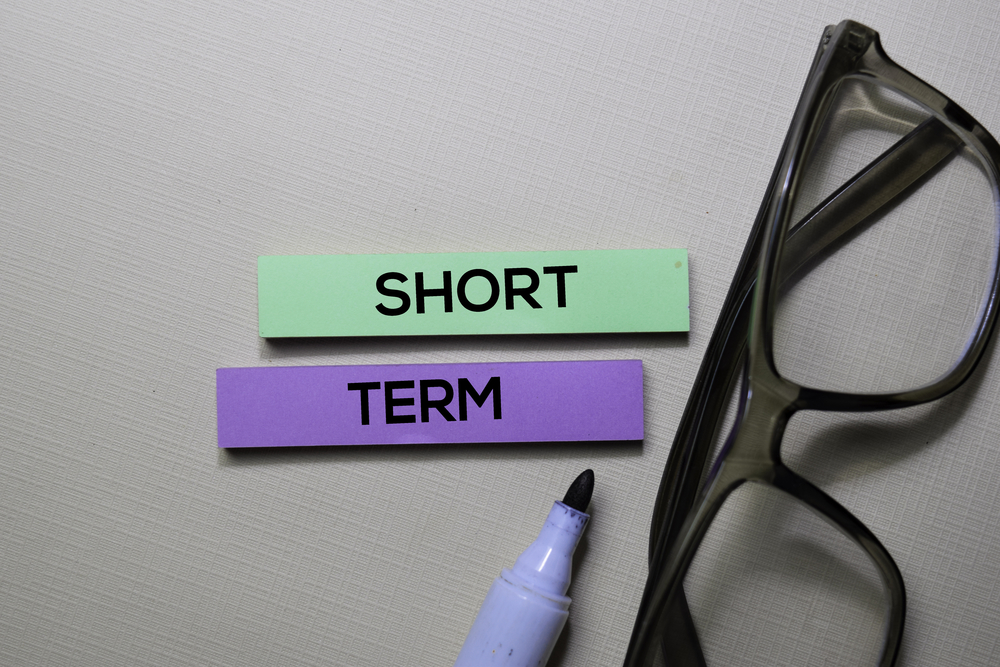
With increasing focus on investors, SEBI, the markets regulator in India, introduced different categories under which the debt funds can be classified. This allows investors to explore 16 different categories of debt funds to select and invest in the right option as per their investment goals.
Investors who have a low risk appetite and an investment horizon of up to six months can consider investing in Ultra Short Mutual Funds as these offer a longer investment duration in comparison to overnight and liquid funds. On the other hand, these also offer shorter duration when compared to other debt funds. Here is everything you need to know about this fund category, along with top fund recommendations.
What are Ultra short duration funds?
Ultra short duration funds are a type of fixed income mutual fund. These funds invest in:
- debt and
- money market securities
The schemes try to maintain the Macaulay Duration of the portfolio within 3 to 6 months. Short-term investors can consider investing in these since they come with lower volatility and offer stable returns compared to longer duration funds.
Reasons to invest in Ultra short duration funds
Investors who have sufficient liquidity or idle cash that may not be required for the next 3-12 months can consider investing in ultra-short funds as compared to maintaining them in a savings bank account.
Since savings bank account interest rates of most major banks range between 2.75 – 3.5%, ultra-short duration funds can offer to fetch higher returns in comparison.
Who can invest in Ultra short duration funds?
Ultra short duration funds are best suited for:
- conservative investors
- Investors who have an investment horizon of 3 months to 1 year
Before investing in these, investors should know that ultra-short duration funds do not provide capital protection or assured returns. Therefore, even if its low, investors must have some appetite for daily or weekly fluctuations.
If an investor invests for more than 3 months, the chances of incurring a loss from these funds are lower.
Advantages of Ultra short duration funds
Ultra short duration funds are ideal for anyone looking to keep aside money for a couple of weeks to a few months. They have near zero risk of loss if someone invests for at least 3 months. These schemes tend to give similar or slightly higher returns than Bank Fixed Deposits of equal or comparable investment tenure.
Top Ultra short duration funds in 2023
Based on historical performance, here are the top fund options to invest in ultra short duration funds:
- IDFC Ultra Short Term Fund
- ICICI Prudential Ultra Short Term Fund
- HDFC Ultra Short Term Fund
- SBI Magnum Ultra Short Duration Fund
IDFC Ultra Short Term Fund
About Fund
The scheme aims to provide investors with a short-term savings investment option. It aims to fetch stable returns by adopting a low-risk strategy. It focuses on a portfolio primarily made up of debt and money market securities while maintaining a Macaulay duration between 3 to 6 months.
| Inception Date | July 18 2018 |
| Benchmark Name | NIFTY Ultra Short Duration Debt Index |
| Fund Manager | Harshal Joshi |
| Expense ratio | 0.24% |
| Fund type | Open-ended |
| Risk | Low to moderate |
Historical Returns of the Fund (annualised)
| 1-Year | 2-Year | 3-Year | 10-Year |
| 3.46% | 4.61% | 5.79% | 6.13% |
ICICI Prudential Ultra Short Term Fund
About Fund
The scheme aims to offer income through an investment focus across a range of debt and money market instruments. It aims to maintain a portfolio of these instruments such that the Macaulay duration is between 3 to 6 months at all times. This fund category is relatively less affected by overall interest rate movements and may, therefore, be suitable for investors looking to generate regular income while maintaining high liquidity levels.
| Inception Date | January 01, 2013 |
| Benchmark Name | NIFTY Ultra Short Duration Debt Index |
| Fund Manager | Manish BanthiaRitesh Lunawat |
| Expense ratio | 0.39% |
| Fund type | Open-ended |
| Risk | Moderate |
Historical Returns of the Fund (annualised)
| 1-Year | 2-Year | 3-Year | 5-Year | 10-Year |
| 4.58% | 5.87% | 6.92% | 7.32% | 8.46% |
HDFC Ultra Short Term Fund
About Fund
The scheme seeks to generate regular income combined with capital appreciation by investing in debt and money market instruments. The portfolio maintains a Macaulay duration between 3-6 months at all times, thereby ensuring low impact of interest rate volatilities.
| Inception Date | September 25, 2018 |
| Benchmark Name | CRISIL Ultra Short Term Debt Index |
| Fund Manager | Anil Bamboli |
| Expense ratio | 0.34% |
| Fund type | Open-ended |
| Risk | Low to Moderate |
Historical Returns of the Fund (annualised)
| 1-Year | 2-Year | 3-Year | 10-Year |
| 3.88% | 5.28% | 6.22% | 6.49% |
SBI Magnum Ultra Short Duration Fund
About Fund
The scheme aims to offer investors an opportunity to earn regular income combined with high liquidity by investing in a portfolio of debt and money market instruments. It acts as a good option for investors looking for alternatives to parking their extra funds in bank deposits.
| Inception Date | January 01, 2013 |
| Benchmark Name | Nifty Ultra Short Duration Debt Index |
| Fund Manager | R Arun |
| Expense ratio | 0.31% |
| Fund type | Open-ended |
| Risk | Low to Moderate |
Historical Returns of the Fund (annualised)
| 1-Year | 2-Year | 3-Year | 5-Year | 10-Year |
| 3.56% | 4.79% | 5.89% | 6.48% | 7.44% |
Taxation on returns from Ultra short duration funds
An investment in Ultra short duration funds earns investors taxable capital gains. The tax rate is determined based on the duration of investment, also known as the holding period. Here are some important points to note on taxation on returns from these funds:
- Capital gains earned within a span of three years are called Short-term Capital Gains. STCG are added to an investor’s total income and taxable as per his/her income slab.
- Capital gains earned after three years or more come under the Long-term Capital Gains (LTCG) bucket. LTCG earned from these funds is taxable at.
- 20% after considering indexation and
- 10% without indexation
Important points to note while investing in ultra short duration funds
Some of the factors that an investor should bear in mind while investing in these schemes are:
Expense ratio:
Ultra-short duration funds tend to generate relatively low income than longer duration funds. A fund with a higher expense ratio may mean lower overall returns for investors. Therefore, investors should invest in schemes with comparatively lower expense ratios.
Credit quality:
It is a common misconception that ultra-short duration fund investments do not carry any risk. Investors should remember that although these funds come with low interest rate risk, there is always a credit risk involved. This can mean loss of capital invested, therefore, it is advisable for investors to opt for schemes that invest in high credit quality instruments.
Investment tenure:
It is advisable to invest in these funds for approximately 3 – 12 months. For an investment tenure under 3 months, liquid funds are advisable over ultra short duration funds. For investment tenures over 12 months, debt funds are considered better than ultra short duration funds.
Historical performance:
An investor must consider the historical performance of the scheme that they want to invest in. Looking at the fund manager’s performance track record can also give insights into the fund’s profitability across different market and interest rate situations.
Conclusion
Since bond yields tend to change across different macroeconomic situations, monetary policy changes, exchange rate fluctuations and other factors, investors should avoid basing returns expectations as per short term fund performance. Investors must evaluate the various risk factors and weigh them against personal risk-taking ability to make an informed investment decision.
FAQs
To invest in some of the best ultra short duration funds, investors can download the Fisdom app and explore the top-performing funds to invest. The app allows a seamless user experience through the mutual fund investment process.
Some of the common risks associated with investment in ultra short duration funds include credit risk, currency risk, reinvestment risk, liquidity risk, and interest rate risk.
Choosing between liquid and ultra short duration funds depends on an investor’s investment horizon, risk appetite, and investment objective. Liquid funds are an ideal choice if an investor is seeking an alternative to bank deposits. Ultra short duration funds are ideal for an investment horizon of 3-6 months.
Liquid funds are debt mutual funds that primarily invest in high credit quality debt securities that have maturities of under 91 days. These do not have a lock-in period and are mostly open-ended funds.
No, ultra short duration funds are a part of the debt fund categories and invest mainly in debt and money market instruments.





















